Vegan Diet for Abs: Your Ultimate Guide
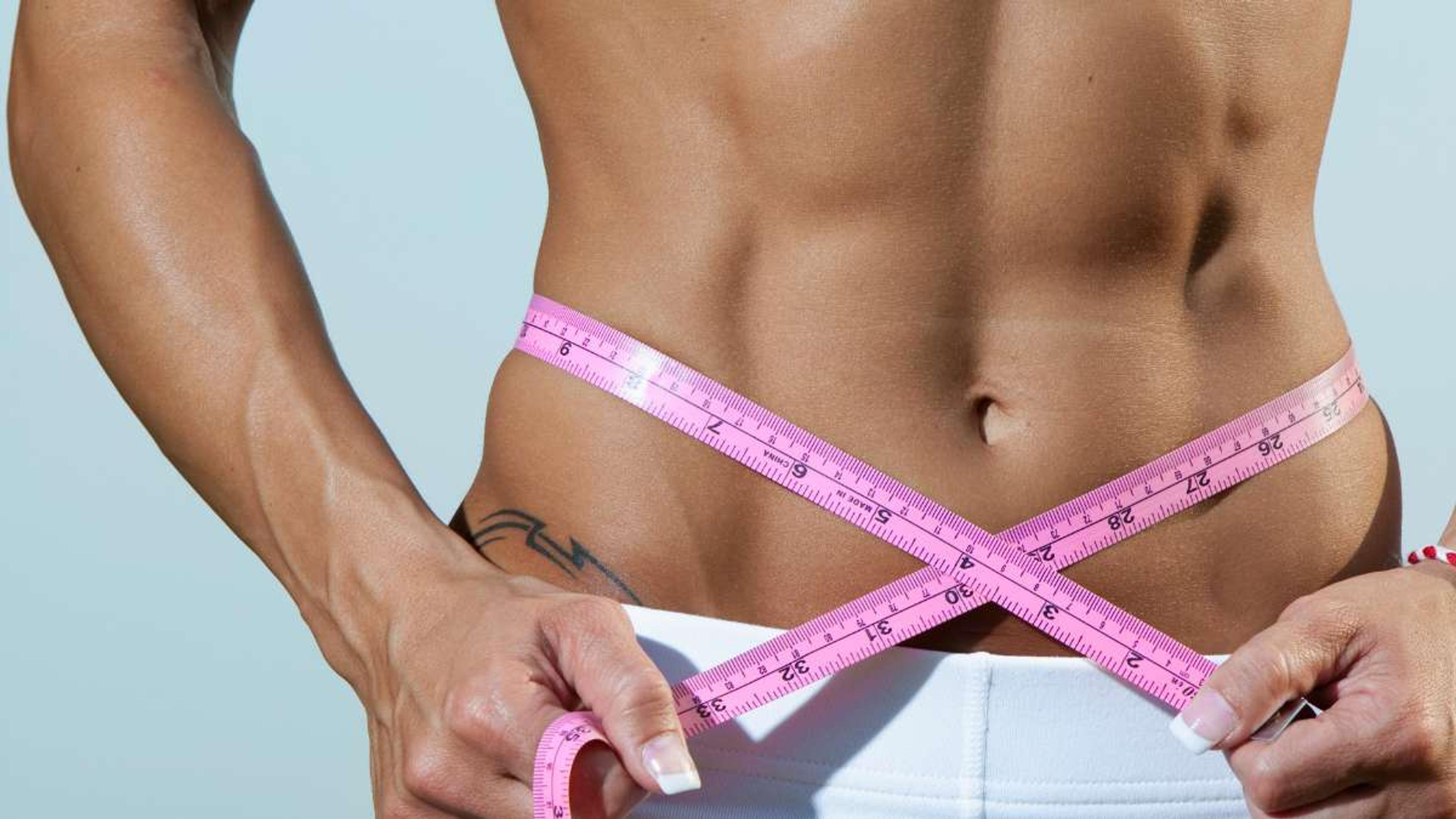
- Key Takeaways
- Benefits of a Vegan Diet for Abs
- Essential Nutrients for Abs on a Vegan Diet
- Holistic Approach to Achieving Six-Pack Abs
- Creating a Caloric Deficit for Fat Loss
- Sample Vegan Meal Plan and Exercise Routine for Abs
- Staying Motivated and Consistent on a Vegan Diet
- Conclusion
- FAQs
Struggling to sculpt your abs while following a vegan diet? Numerous studies indicate that incorporating plant-based foods can not only aid in achieving the coveted six-pack but also offer numerous health benefits.
This article offers an insightful guide on how to effectively combine vegan nutrition and exercise for optimal ab development. Ready to achieve those dream abs, the vegan way? Read on!
Key Takeaways
- A vegan diet can help lower body fat percentage, increase nutrient intake, and reduce inflammation, all of which contribute to achieving well-defined abs.
- Essential nutrients for abs on a vegan diet include plant-based protein sources like tofu and tempeh, healthy fats from avocado and nuts, and fiber-rich foods for optimal digestion.
- Achieving six-pack abs requires a holistic approach that includes balancing nutrition and exercise, incorporating cardio and strength training, and staying hydrated.
- It's important to create a caloric deficit for fat loss by balancing protein, carbs, and fats in your meals while counting calories and tracking progress.
Benefits of a Vegan Diet for Abs
A vegan diet can offer several benefits for achieving well-defined abs, including lower body fat percentage, increased nutrient intake, and reduced inflammation.
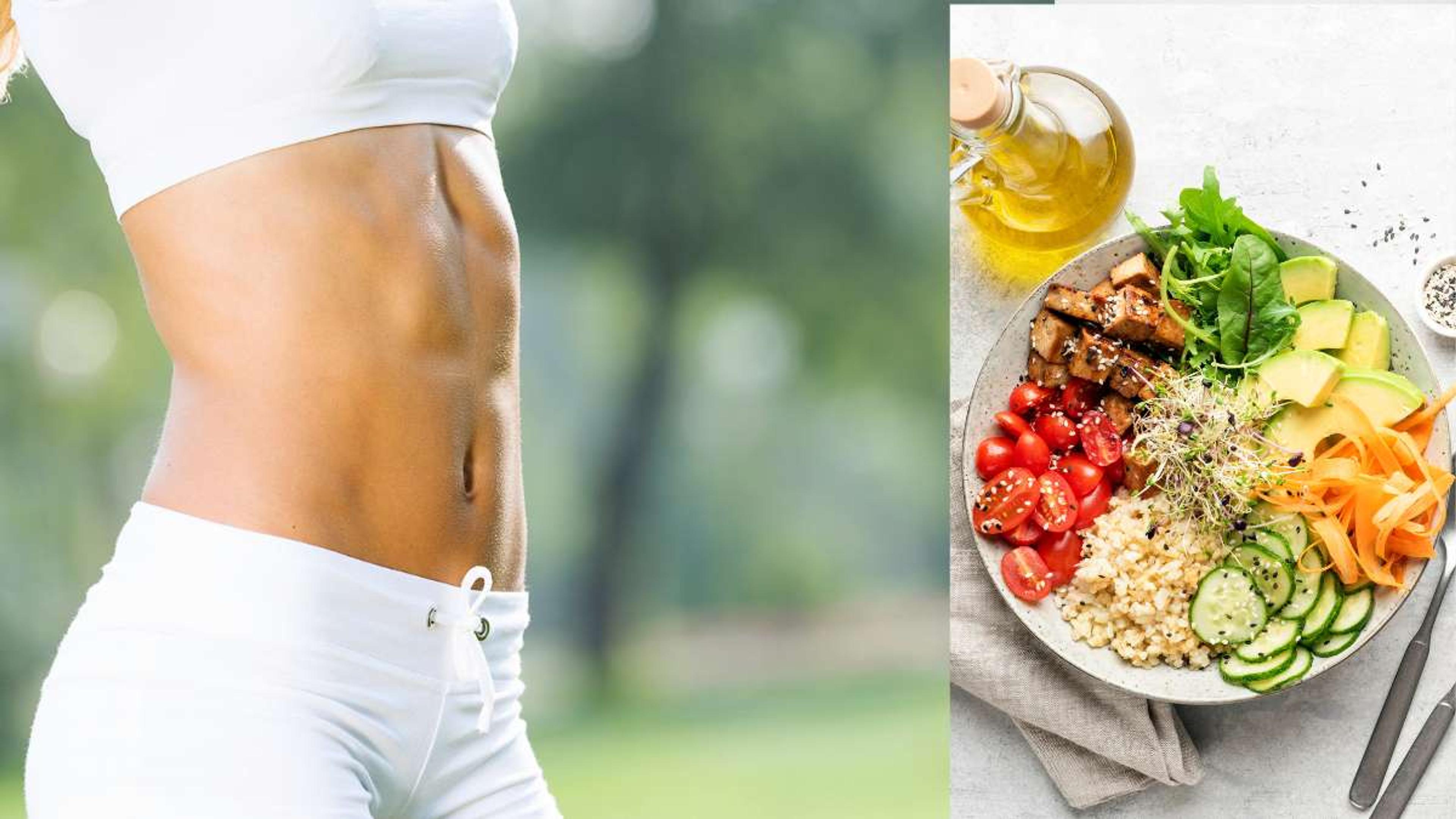
Lower body fat percentage
Being on a vegan diet can cut down body fat. It lowers the intake of calories and ups our energy use. But, how?
Firstly, plant-based foods are generally lower in calories compared to animal products. By focusing on nutrient-dense fruits, vegetables, whole grains, and legumes, you can naturally reduce your calorie intake while still feeling satisfied.
Secondly, plant-based foods are rich in fiber, which contributes to feelings of fullness and helps regulate digestion. This can prevent overeating and aid in weight management. Additionally, a vegan diet is typically low in saturated fats found in animal products. High levels of saturated fats have been linked to increased body fat accumulation
This helps to shed extra weight fast. A vegan way of eating is linked with less obesity too. So, if you want six-pack abs, try going vegan!
Increased nutrient intake
Eating a vegan diet boosts nutrient intake. Tofu, broccoli, quinoa and whole grains are plant-based foods full of good nutrients. They give your body plenty of fiber, antioxidants and other helpful compounds from plants.
A vegan diet is low in saturated fat but rich in nutrients. This comes from eating whole foods like spinach, kale and berries. When done right, the diet can meet all your nutritional needs! Whole foods pack lots of vitamins that help to burn belly fat and build great abs.
Reduced inflammation
Eating a vegan diet can lower inflammation in your body. It cuts out foods that cause it and fills up on ones that fight it. Many veggies, fruits, nuts, seeds, and whole grains are power foods for this.
Berries have antioxidants which help the whole body fight swelling and disease. Beans have fiber which lowers CRP, a sign of inflammation in the blood. A plant-based diet also boosts good parts of your gut that calm down worry in your system.
This aids heart health and lowers risk of attack caused by high protein levels linked to swelling. This way even abs get big benefits from eating vegan!
Essential Nutrients for Abs on a Vegan Diet
To achieve abs on a vegan diet, it's important to focus on obtaining essential nutrients such as plant-based protein sources like tofu and tempeh, healthy fats from avocado and nuts, and fiber-rich foods for optimal digestion.
Plant-based protein sources
Plant-based protein sources are abundant in a vegan diet. They provide the essential nutrients needed to maintain strong abs and support overall health. Here are some examples of plant-based protein sources:
- Beans: Black beans, chickpeas, and lentils are all rich in protein.
- Nuts: Almonds, walnuts, and cashews contain protein as well as healthy fats.
- Seeds: Chia seeds, flaxseeds, and hemp seeds are all great sources of protein.
- Tofu and tempeh: These soy products are versatile and high in protein.
- Whole grains: Quinoa, brown rice, and oats contain protein along with other important nutrients.
- Leafy greens: Spinach, kale, and broccoli have some protein content too.
Healthy fats from avocado and nuts
Avocado and nuts are great sources of healthy fats for a vegan diet. They contain monounsaturated fats, which are good for the heart and can reduce inflammation. Avocados have about 20 grams of monounsaturated fat per avocado, while nuts like almonds, walnuts, and cashews are also high in healthy fats. These fats can help vegans stay full and satisfied, as they provide more calories compared to other fruits. However, it's important to consume them in moderation, as eating too much can lead to weight gain.
Fiber-rich foods for digestion
Fiber-rich foods are important for digestion on a vegan diet. They help to keep things moving smoothly in your digestive system. Here are some examples of fiber-rich foods that you can include in your vegan diet:
- Whole grains like quinoa and brown rice
- Legumes such as black beans and lentils
- Nuts like almonds and walnuts
- Vegetables like broccoli and spinach
- Fruits like berries and apples
Holistic Approach to Achieving Six-Pack Abs
Achieving six-pack abs involves more than just a vegan diet. It requires a holistic approach that includes balancing nutrition and exercise, incorporating cardio and strength training, and staying hydrated.
Read on to discover the key elements for sculpting those enviable abs.
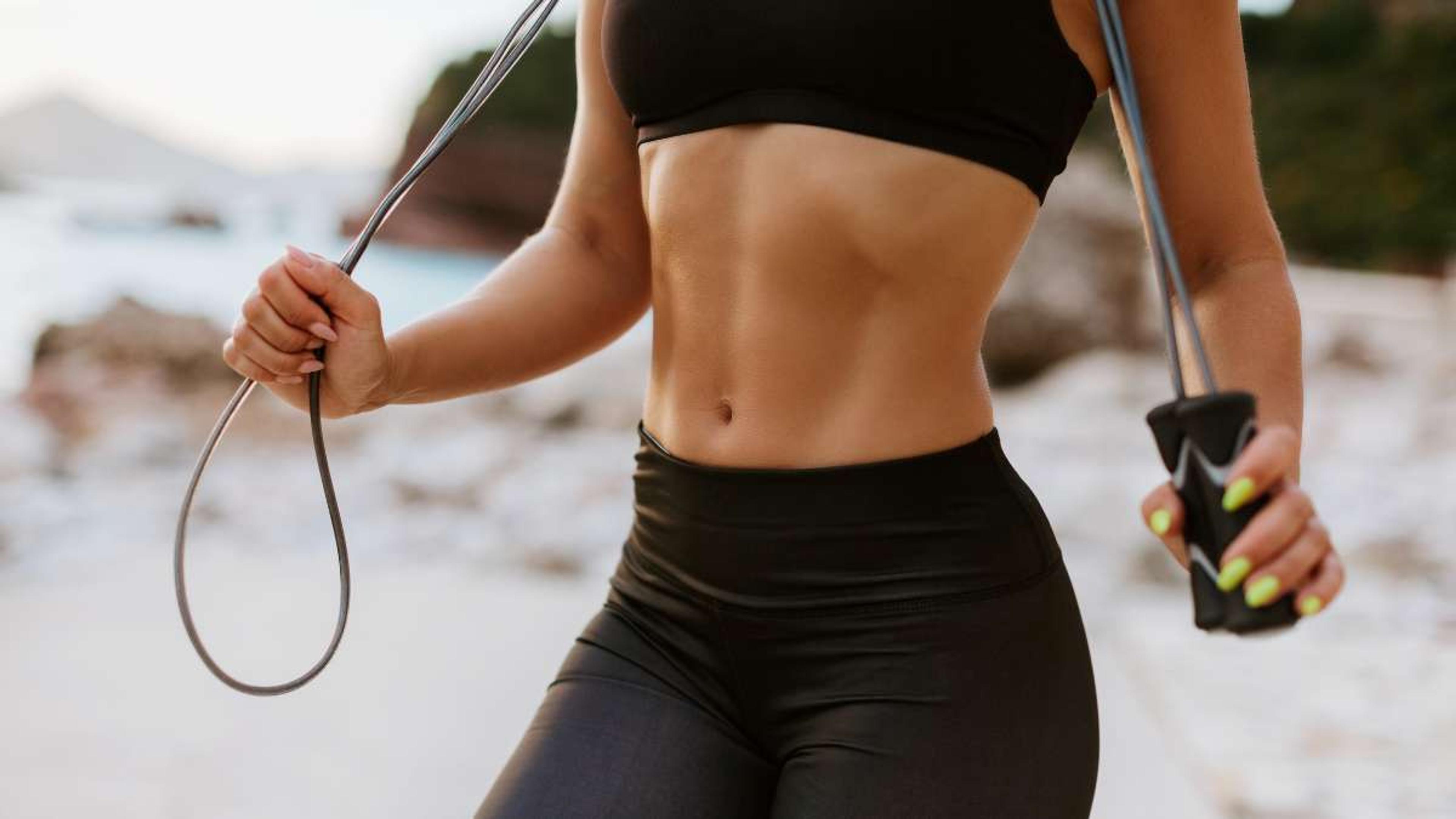
Balancing Nutrition and Exercise
To achieve six-pack abs, it's important to find a balance between nutrition and exercise. While exercise helps strengthen the abdominal muscles, proper nutrition is the key to reducing body fat and revealing those abs.
A vegan diet can be beneficial for this purpose as it often contains fewer calories compared to a non-vegan diet. By focusing on whole plant-based foods such as fruits, vegetables, whole grains, legumes, and lean sources of plant-based protein like tofu or tempeh, you can provide your body with the nutrients it needs while keeping calorie intake in check.
It's also important to incorporate regular exercise into your routine to help build muscle and burn additional calories. Remember that consistency is key when striving for defined abs – aim for at least 150 minutes of moderate-intensity aerobic activity per week along with strength training exercises targeting all major muscle groups two days per week.
Incorporating cardio and strength training for optimal results
To achieve optimal results and get those six-pack abs, it's important to incorporate both cardio and strength training into your routine. Here's how:
- Cardio exercises like running, cycling, and swimming help burn calories and shed excess fat, including belly fat.
- Aim for at least 150 minutes of moderate-intensity cardio each week to improve heart health and boost overall fat burning.
- High-intensity interval training (HIIT) is an effective way to maximize calorie burn in a short amount of time.
- Strength training builds lean muscle mass, which helps increase your metabolism and burn more calories even at rest.
- Focus on compound exercises that target multiple muscle groups, such as squats, deadlifts, push-ups, and pull-ups.
- Don't neglect your core muscles - include exercises like planks, crunches, and Russian twists to strengthen your abs.
- Aim for two to three strength-training sessions per week, allowing adequate rest and recovery between workouts.
- Mix up your workouts with different exercises and variations to keep challenging your muscles and avoid plateauing.
Importance of Hydration
Proper hydration is crucial when it comes to achieving six-pack abs on a vegan diet. Staying adequately hydrated throughout the day is essential for supporting digestion, maintaining energy levels, and overall well-being.
Hydration plays an often-overlooked role in the pursuit of defined abdominal muscles. Drinking enough water ensures that your body can efficiently process nutrients and eliminate waste, which in turn supports optimal digestion and absorption of nutrients from your plant-based meals.
So, make sure you're drinking enough water each day as part of your holistic approach to getting those coveted abs on a vegan diet!
Creating a Caloric Deficit for Fat Loss
To create a caloric deficit for fat loss on a vegan diet, it's important to balance your protein, carb, and fat intake. Counting calories and tracking your progress can help you stay on track with your goals.
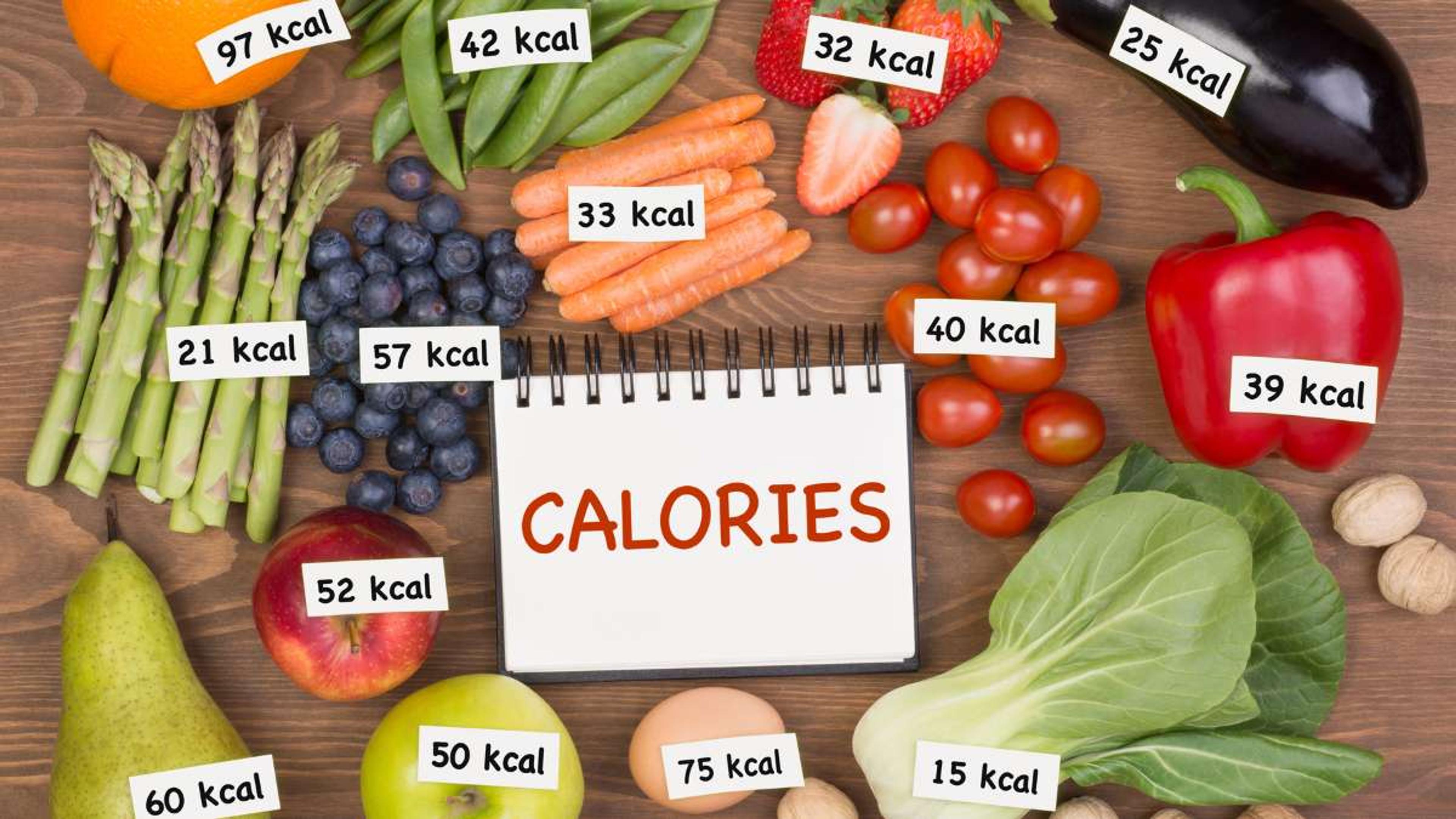
Balancing protein, carbs, and fats for abs
To achieve abs on a vegan diet, it's important to balance your intake of protein, carbohydrates, and fats.
Protein helps build and repair muscles, which is crucial for achieving defined abs. Good sources of plant-based protein include tofu, tempeh, lentils, chickpeas, black beans, and quinoa.
Carbohydrates provide energy for workouts and help maintain muscle mass. Opt for whole grains like brown rice and oats, as well as fruits and vegetables for fiber and essential nutrients.
Healthy fats from avocados, nuts (such as almonds), seeds (like flaxseed), and coconut can help promote satiety while providing important nutrients like omega-3 fatty acids. Remember to prioritize whole foods and pay attention to portion sizes when balancing these macronutrients in your meals.
Counting calories and Tracking Your Progress
Counting calories and tracking your progress is an essential strategy when aiming for abs with a vegan diet. A caloric deficit, consuming fewer calories than you burn, is necessary for weight loss. Here are a few tips to follow;
Counting Calories: Helps to create a caloric deficit required for fat loss. It's recommended to cut 500-1,000 calories daily for 1-2 pounds of weight loss per week. Use apps or websites to track your caloric intake. Make sure to include all meals, snacks, and drinks.
Tracking Your Progress: Allows you to see trends, identify areas for improvement and stay motivated. It's also an effective way of ensuring you're meeting your daily nutrient needs on a vegan diet.Keep a record of your weight and body measurements. Regularly review and adjust your plan based on your progress.
Stay consistent with your efforts, but avoid trying to lose too much weight too quickly. A USC study found the vegan diet to be the most effective for weight loss, so you're on the right track. Remember, the goal is to achieve lower body fat percentage, not just weight loss. Consistency and patience will lead you to your goal of achieving abs.
Sample Vegan Meal Plan and Exercise Routine for Abs
This section will provide a sample vegan meal plan and exercise routine that can help you achieve your goal of having defined abs.
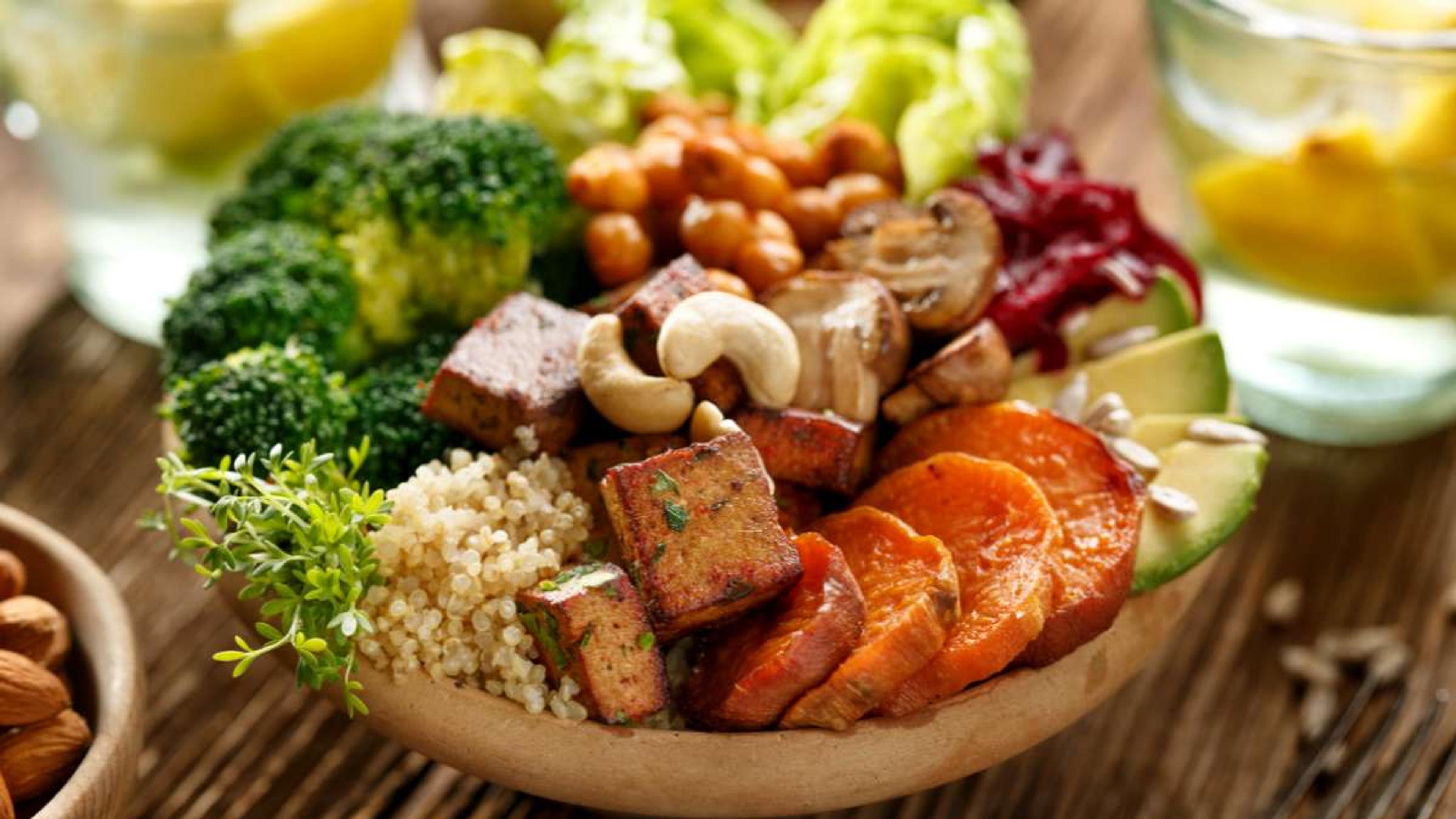
High-protein breakfast options
Start your day off right with these high-protein breakfast options to support your journey towards abs:
- Scrambled tofu with veggies: Tofu is a great plant-based source of protein. Enjoy it scrambled with colorful veggies like peppers, onions, and spinach for a power-packed breakfast.
- Protein smoothie: Blend together a scoop of vegan protein powder, almond milk, frozen berries, and a spoonful of peanut butter for a delicious and satisfying smoothie that will keep you fueled all morning.
- Quinoa breakfast bowl: Cook up some quinoa and top it with sliced almonds, fresh fruit, and a drizzle of maple syrup for a nutritious and protein-rich breakfast.
- Oatmeal with nuts: Start your day with a hearty bowl of oatmeal topped with chopped walnuts or almonds for added protein and healthy fats.
- Vegan protein pancakes: Whip up a batch of pancakes using plant-based protein powder as the base. Serve them topped with sliced bananas or blueberries for an extra nutritional boost.
Nutrient-packed lunch and dinner recipes
- Choose a variety of colorful vegetables, such as spinach, kale, broccoli, and bell peppers, to include in your salads or stir-fries for lunch and dinner.
- Add plant - based protein sources like tofu, tempeh, lentils, quinoa, and black beans to your meals to help build muscle and keep you feeling satisfied.
- Incorporate healthy fats by using avocado as a topping or adding a handful of nuts (like almonds or walnuts) to your salads or grain bowls.
- Include whole grains like brown rice or quinoa as a side dish for added fiber and nutrients.
- For dinner, try making veggie-packed stir-fries with tofu or tempeh, served over brown rice or quinoa.
- Experiment with plant - based protein sources in dishes like lentil curry or black bean tacos.
- Don't forget to include a source of vitamin D, such as fortified plant-based milk or supplements if needed.
Remember: A nutrient-packed lunch and dinner consisting of vegetables, plant-based proteins, healthy fats, and whole grains can support your goals of achieving six-pack abs on a vegan diet.
Snacks for fuel and recovery
Snacks are important for providing fuel and aiding in recovery after a workout. Here are some vegan snack options to include in your abs-focused meal plan:
- A handful of unsalted almonds: Almonds are a great source of protein, healthy fats, and fiber.
- Peanut butter on whole-grain toast: This combination provides a good balance of carbohydrates, protein, and fats.
- Veggie sticks with hummus: Carrots, celery, and bell peppers paired with hummus make for a nutritious and satisfying snack.
- Greek yogurt alternative topped with berries: Opt for a vegan-friendly yogurt made from soy or coconut milk and add fresh berries for added antioxidants.
- Protein smoothie: Blend together plant-based protein powder, almond milk, spinach, and some frozen fruits for an energizing post-workout snack.
- Roasted chickpeas: Season chickpeas with spices like paprika or cumin and roast them in the oven until crispy for a crunchy high-protein snack.
- Rice cakes with avocado: Spread mashed avocado on rice cakes for a light and filling snack rich in healthy fats.
- Trail mix: Create your own mix using dried fruits like cranberries or raisins along with nuts such as cashews or walnuts.
Staying Motivated and Consistent on a Vegan Diet
Set realistic goals and celebrate non-scale victories to stay motivated on a vegan diet. Seek expert advice from nutritionists and dietitians for guidance and support throughout your journey.
Setting Realistic Goals & Celebrating Non-Scale Victories
It is important to set realistic goals and celebrate non-scale victories when following a vegan diet for abs. Instead of solely focusing on the number on the scale, consider other positive changes that come with a healthy lifestyle.
Non-scale victories can include increased energy levels, improved mood, better sleep quality, and enhanced athletic performance. Recognizing these achievements can help keep you motivated and committed to your vegan diet and fitness routine.
It's crucial to remember that progress takes time, so be patient with yourself and celebrate every small win along the way.
Get Expert Advice from Nutritions and Dietitians
Expert advice from nutritionists and dietitians is crucial for individuals following a vegan diet. These professionals have specialized knowledge in plant-based nutrition and can provide valuable expertise and support.
They understand the specific needs of vegan clients and can help ensure that their nutritional needs are met. By working with a nutritionist or dietitian, vegans can receive personalized guidance on balancing nutrients, creating meal plans, managing caloric intake, and achieving optimal results for abs.
It's important to consult with experts who utilize evidence-based resources when providing nutrition guidance to vegan clients, as this ensures accurate and up-to-date information is shared.
Conclusion
In conclusion, a vegan diet can be an effective way to achieve abs. By focusing on nutrient-rich plant-based foods and balancing nutrition with exercise, you can reduce body fat percentage and enhance muscle definition.
With the right meal plan and motivation, you can reach your goals for killer vegan abs.
FAQs
1. Can I get abs on a vegan diet?
Yes, it is possible to get abs on a vegan diet by following a balanced and nutritious meal plan that includes plant-based sources of protein, whole grains, fruits, vegetables, and healthy fats.
2. What are some good plant-based protein sources for building abs?
Good plant-based protein sources for building abs include legumes (such as beans and lentils), tofu, tempeh, edamame, quinoa, chia seeds, hemp seeds, nuts, and nut butters.
3. How do I ensure I'm getting enough nutrients on a vegan diet for abs?
To ensure you're getting enough nutrients on a vegan diet for abs, focus on eating a variety of foods from different food groups such as fruits, vegetables (especially leafy greens), whole grains (like brown rice and oats), nuts/seeds/legumes/tofu for proteins and healthy fats.
4. Are there any supplements I should take while following a vegan diet for abs?
While it's always best to obtain nutrients from whole foods firsts if needed or in consultation with healthcare professionals; vegans may consider taking supplements like vitamin B12 or omega-3 fatty acids to meet their nutritional needs

